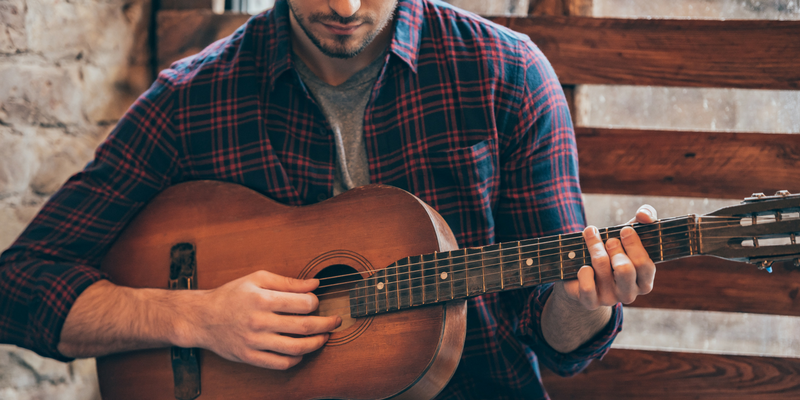How to Make Your Musical Resolutions Stick

Making Your Musical Resolutions Stick
If you’re reading this, there’s a good chance that one of your personal resolutions is to improve your musical skills, whether by learning a new instrument or taking them to a new level. But as everyone knows, resolutions are much easier to make than to keep. So how do you stay motivated month after month? Here are a few tips:
Set realistic goals
If you set the bar too high too soon, anything short of spectacular progress feels like failure, so it’s important to set realistic short-term goals that reflect your overall direction, experience and time available. For example, given 30 days, a beginning blues guitarist might shoot for playing a 12-bar shuffle boogie pattern with a solid feel, while a more experienced player might set out to transcribe and memorize a 12-bar BB King solo. Start with modest goals and don’t stress; as you gain skill, you’ll also gain the ability to tackle bigger challenges.
Use the time you have
Life is busy and playing time is at a premium, but even ten minutes in the morning, after work, or before bed is enough to develop skills and maintain momentum. Focus on playing one thing at a time really well - each small success will keep you looking forward to your next playing session.
It’s not a race
It’s hard not to compare yourself to others, but your only true competition is with your own potential. The real goal of learning music is not to play fast or know a lot of tricky chords, but about connecting a feeling to a sound. Take your time, make every note count, be persistent and great things will happen.
Practicing: all work and no play?
The word “practice” is often misunderstood as “something tedious you have to do before you play music,” but in reality, practicing and playing are the same thing. With every note you play, whether its part of a scale pattern or a song, you’re simultaneously playing music and practicing your skills. Yes, technical exercises are important, but so is listening, learning songs, playing with friends, sitting in on jam night - they all make you a better musician.
Music: all play and no work?
If you assume that learning an instrument is quick, east, and non-stop fun, you're probably not going to stick with it. It is one of the most satisfying things you'll ever do, but it's also a complex mental and physical challenge. Knowing that, the feeling of accomplishment that you get from overcoming obstacles and creating music is the ticket to a much higher level of fun- it puts the "play" into "playing music".
- Classical Guitar School with Jason Vieaux
- Fingerstyle Guitar School with Martin Taylor
- Flatpick Guitar School with Bryan Sutton
- Dobro School with Andy Hall
- Electric Bass School with Nathan East
- Jazz Bass School with John Patitucci
- Bluegrass Bass School with Missy Raines
- ArtistWorks Corp
- Mandolin School with Mike Marshall
- Banjo School with Tony Trischka
- Fiddle School with Darol Anger
- Classical Flute School with Jeffrey Khaner
- Classical Trumpet School with David Bilger
- Classical Clarinet School with Ricardo Morales
- French Horn School with William Caballero
- Piano School with Christie Peery
- Percussion School with Luis Conte
- Harmonica School with Howard Levy
- DJ Skratch School with Qbert
- Popular Piano School with Hugh Sung
- Blues Guitar School with Keith Wyatt
- Mike Block Multi-Style Cello School
- Eric Marienthal Jazz Saxophone School
- Jazz Piano with George Whitty
- Electric Country Guitar with Guthrie Trapp
- Classical Mandolin with Caterina Lichtenberg
- Ukulele Lessons with Craig Chee and Sarah Maisel
- Bluegrass Vocal Lessons with Michael Daves
- Jazz Drum Lessons with Peter Erskine







Comments